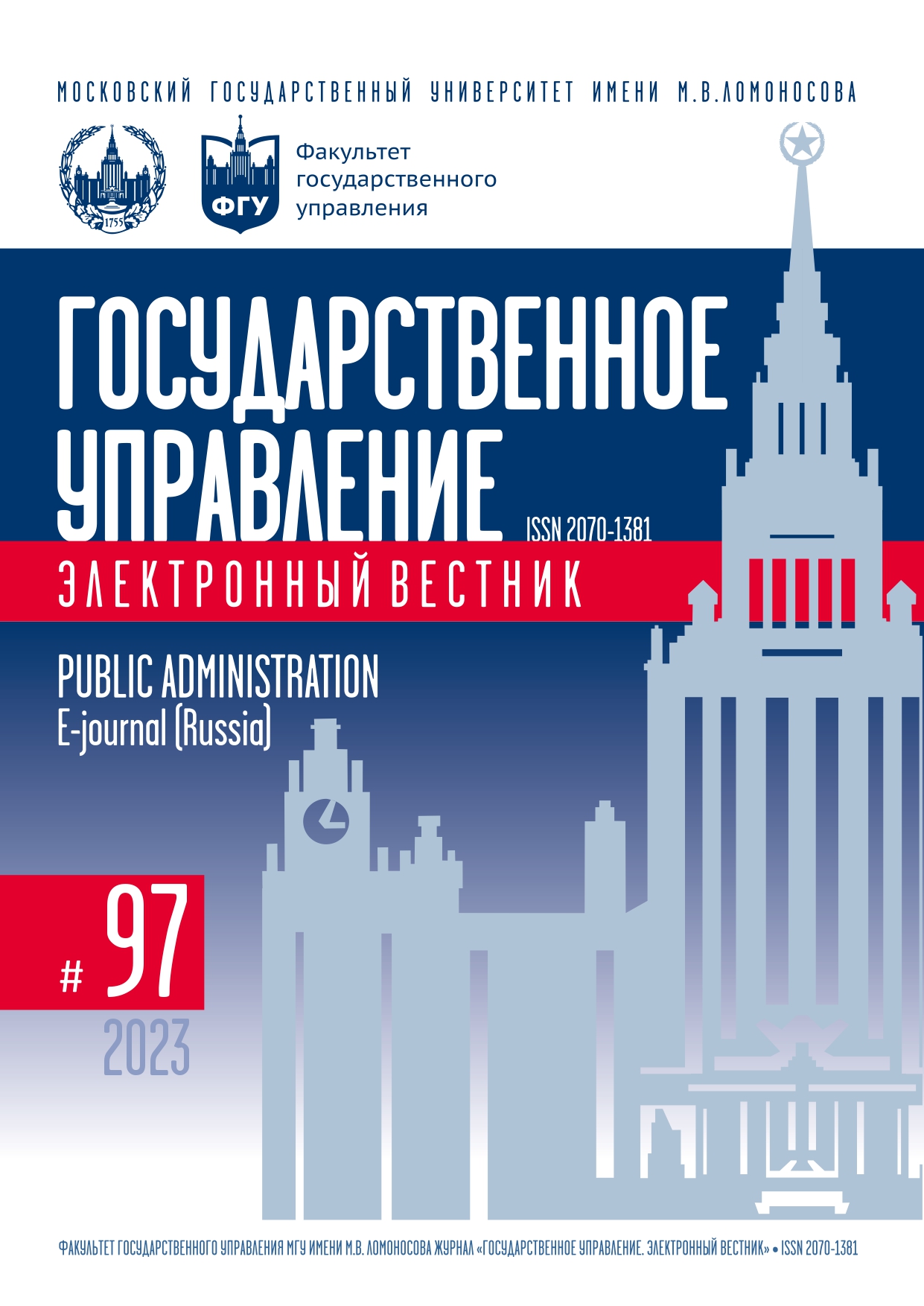Тренинговые инструменты в современной HR-аналитике
DOI:
https://doi.org/10.24412/9v6rt202Ключевые слова:
HR-аналитический тренинг, функции HR-аналитики, задачи HR-аналитики, направления развития HR-аналитики, критерии отбора тренинговых инструментов HR-аналитики, шеринг, процессинг, фасилитация, психометрическое и социометрическое моделированиеАннотация
Разработка и отбор новых тренинговых инструментов являются важнейшими слагаемыми успешного тренинга. Разработчикам программ тренингов необходимо определить и неукоснительно следовать заранее сформулированным критериям их отбора в соответствии с десятком ориентиров. Актуальность глубокого исследования и сравнительного анализа возможностей, преимуществ и ограничений наиболее популярных, а также оригинальных тренинговых инструментов связана, во-первых, с широким распространением тренингов в процессе привлечения, обучения, мотивации персонала в современных организациях. Во-вторых, именно в процессе реального взаимодействия персонала и руководителей в рамках тренинга возможно оперативное выявление скрытых противоречий, напряженных ситуаций и конфликтов. В-третьих, тренинговые инструменты весьма многообразны, хорошо зарекомендовали себя в современной практике работы с персоналом и прекрасно встраиваются в комплексы HR-аналитических мероприятий. Цели исследования — определить возможности и ограничения использования современных тренинговых инструментов в процессе HR-аналитики; на основе сравнительного анализа современных тренинговых инструментов выявить критерии их отбора для решения задач HR-аналитики. Метод исследования: сравнительный анализ; в исследовании были применены системный и междисциплинарный подходы. Исследование позволило получить следующие основные результаты: в процессе анализа роли HR-аналитики в управлении персоналом показано, что применение современных инструментов HR-аналитики создает прочную платформу для проведения изменений в организации; в процессе сравнительного анализа традиционных инструментов HR-аналитики выявлены наиболее востребованные, апробированные и оригинальные методы и методики; при исследовании роли тренингов в HR-аналитике продемонстрированы высокие возможности тренингов в HR-аналитической диагностике, в том числе в выявлении зон неустойчивости, противоречий и латентных конфликтов, а также необходимость их применения в решении других задач HR-аналитики. Новизна результата исследования заключается в следующем: введен термин «HR-аналитический тренинг» и предложено его определение; уточнены возможности и ограничения использования современных тренинговых инструментов в процессе HR-аналитики; по-новому обоснован выбор критериев отбора тренинговых инструментов HR-аналитики; дана научно-практическая оценка ряда новых оригинальных HR-аналитических тренинговых методик. В заключении показаны направления дальнейшего развития тренинговых инструментов HR-аналитики и актуальная проблематика исследований в данной области.
Библиографические ссылки
Веретенникова Е.Г., Мирошниченко И.И., Калугян К.Х. Анализ достижения KPI подразделениями организации с использованием Microsoft Power BI // Системный анализ в проектировании и управлении. 2021. Т. XXV. № 1. С. 455–463. DOI: 10.18720/SPBPU/2/id21-93
Емельянов Ю.Н. Активное социально-психологическое обучение. Л.: Изд-во ЛГУ, 1985.
Зонин Н.А., Климова Н.В., Лунин В.Е. Составление портрета потребителя (на примере рынка образовательных услуг) // Молодой ученый. 2015. Спецвыпуск. № 21.1. С. 42–45.
Карапетян А.Г., Щепкова И.В. Исследование трудовых ресурсов предприятия (на примере детского развлекательного центра «Империя Инков») // Молодой ученый. 2015. Спецвыпуск. № 21.1. С. 83–86.
Макшанов С.И. Психология тренинга: Теория. Методология. Практика. СПб.: Образование, 1997.
Новичкова Л.М. Оценка состояния инновационного потенциала организации // Молодой ученый. 2015а. Спецвыпуск. № 21.1. С. 60–63.
Новичкова Л.М. Инструменты стратегического анализа компании // Молодой ученый. 2015b. Спецвыпуск. № 21.1. С. 56–60.
Сикирин С. #PRO Тренинг для тренеров. М.: Издательские решения, 2021.
Солдатова С.Э., Шаламов Г.Г. Перспективы и возможности использования теорий и методов менеджмента в подготовке специалистов по глобальному управлению // Молодой ученый. 2015. Спецвыпуск. № 21.1. С. 69–73.
Тозикова М.А. Новая версия стандарта ISO 9001: 2015: новые акценты в управлении персоналом // Интеграция науки, образования и бизнеса — основа модернизации экономики: материалы научной конференции аспирантов СПбГЭУ: Материалы научной конференции аспирантов СПбГЭУ. Санкт-Петербург: Изд-во: Санкт-Петербургский государственный экономический университет, 2018. С. 61–65.
Чуланова О.Л. Коучинг и фасилитация как инструменты повышения групповой эффективности в управлении проектными командами // Вестник НГУЭУ. 2019. № 4. С. 184–196. DOI: 10.34020/2073-6495-2019-4-184-196
Baesens B., De Winne S., Sels L. Is Your Company Ready for HR Analytics? // MIT SLOAN Management Review. 2017. Vol. 58. № 2. P. 20–21.
Edwards M., Edwards K. Predictive HR Analytics. Mastering the HR Metric. New York: Kogan Page Limited, 2019.
Fitz-enz J. The New HR Analytics: Predicting the Economic Value of Your Company’s Human Capital
Investments. New York: AMACOM, 2010.
Madsen D., Slatten K. The Rise of HR Analytics: A Preliminary Exploration // Global Conference on Business
and Finance Proceedings. 2017. Vol. 12. № 1. P. 148–159.
Mohammed A. HR Analytics: A Modern Tool in HR for Predictive Decision Making // Journal of Management.
Vol. 6. Is. 3. P. 51–63. DOI:10.34218/JOM.6.3.2019.007
Загрузки
Опубликован
Наиболее читаемые статьи этого автора (авторов)
- Батоврина Екатерина Викторовна, Назарова Полина Константиновна, Обучение персонала российских организаций сферы культуры и искусства , Государственное управление. Электронный вестник: № 100 (2023)
- Батоврина Екатерина Викторовна, Геймификация как технология управления персоналом инновационных организаций , Государственное управление. Электронный вестник: № 95 (2022)
Похожие статьи
- Восколович Нина Александровна, Особенности трансформации сферы услуг в новой экономической реальности , Государственное управление. Электронный вестник: № 99 (2023)
- Шестакова Елена Евгеньевна, Современные пенсионные системы на новом этапе трансформации , Государственное управление. Электронный вестник: № 91 (2022)
- Си Фуюань, Бобылева Алла Зиновьевна, Барабошкина Анастасия Валерьевна, Глобальные трансформации: тенденции к росту неустойчивости и драйверы устойчивого развития в современных условиях , Государственное управление. Электронный вестник: № 103 (2024)
- Воронов Александр Сергеевич, Арбатский Михаил Спартакович, Сергеев Степан Сергеевич, Возможности трансформации механизмов управления пространственным развитием инновационных систем регионов Уральского федерального округа , Государственное управление. Электронный вестник: № 95 (2022)
- Оборин Матвей Сергеевич, Орлов Станислав Павлович, Подходы к разработке механизма государственного регулирования сферы рекреации и туризма , Государственное управление. Электронный вестник: № 111 (2025)
- Торопчин Виталий Андреевич, Лазарева Виктория Владимировна , Методологический аспект оценки эффективности государственной политики в депрессивных регионах , Государственное управление. Электронный вестник: № 105 (2024)
- Борщевский Георгий Александрович, Эффективность инструментов управления развитием Дальнего Востока , Государственное управление. Электронный вестник: № 100 (2023)
- Кудрявцева Ольга Владимировна, Васильев Сергей Владимирович, Реализация Цели устойчивого развития в сфере обращения с отходами в России через национальные проекты , Государственное управление. Электронный вестник: № 109 (2025)
- Шпакова Раиса Николаевна, Демаков Илья Сергеевич, Социальная активность как объект проектного управления: анализ федерального проекта «Социальная активность» , Государственное управление. Электронный вестник: № 90 (2022)
- Шимук Ольга Владимировна, Устойчивое развитие сельских территорий: проблемы и направления государственного регулирования , Государственное управление. Электронный вестник: № 99 (2023)
Вы также можете начать расширеннвй поиск похожих статей для этой статьи.




